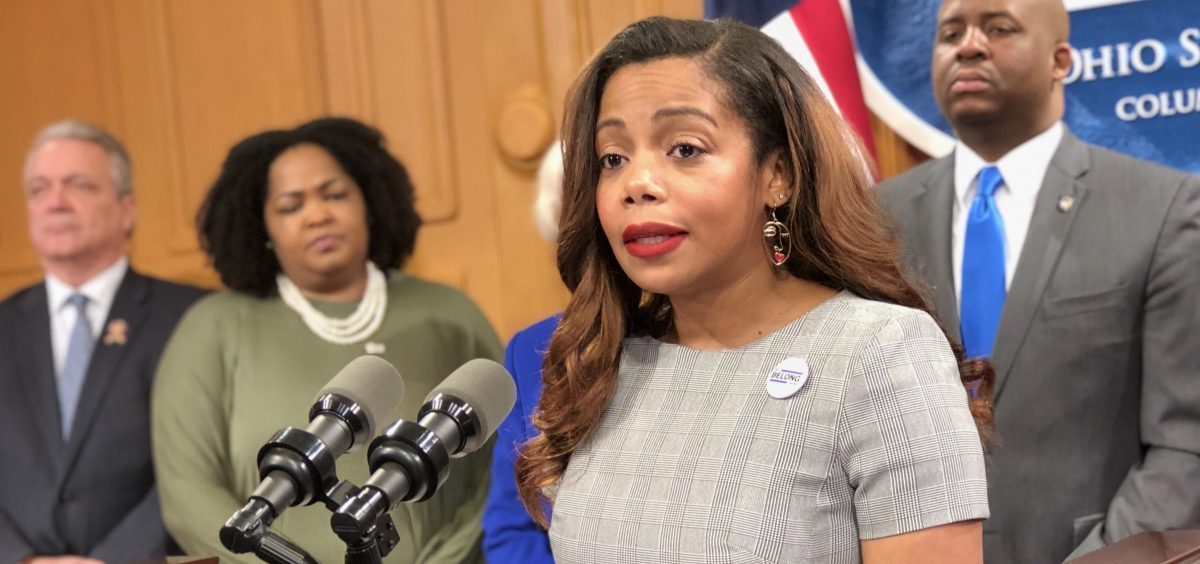News

Lawmakers Say Anonymous Hotline Can Help Close Gender Pay Gap
By: Andy Chow | Statehouse News Bureau
Posted on:
House Democrats are trying to create a tool that could make it easier for people to report potential wage discrimination. They believe an anonymous hotline would shine a light on unreported disparities.
Ohio’s Democratic lawmakers are trying to re-ignite discussions on HB221, which received three hearings in committee before stalling last year.
The bill requires the Ohio Civil Rights Commission to “establish and maintain a system for an individual to anonymously report wage discrimination by an employer in violation of the Ohio Civil Rights Law,” according to a state analysis.
The piece of legislation, sponsored by Rep. Janine Boyd (D-Cleveland Heights) and Rep. Erica Crawley (D-Columbus), would construct a system to file the complaint by phone or online. It’s a bill that has been introduced over the course of several General Assembly sessions.
House Minority Leader Emilia Sykes (D-Akron) says transparency is a key to closing the gap.
“So it takes people being willing to speak out and sometimes you have to do that anonymously. Some folks don’t feel comfortable because there are cultures of silence that allow this to perpetuate and so transparency is a big deal,” says Sykes.
Business groups oppose the bill with some calling it “unnecessary.”
The Ohio Chamber of Commerce said the current reporting system within the Ohio Civil Rights Commission is the “proper procedure” for reporting wage discrimination.
“Because it’s an open process where a respondent has knowledge of the charge filed and has an opportunity to respond,” Kevin Shimp, director of Labor and Legal Affairs for the Ohio Chamber of Commerce, said in written testimony to the House Civil Justice Committee. “The current reporting system also requires the charging party to sign the charge under oath, which should prevent any charges going forward that have no basis in fact.”
A September 2019 report from the National Partnership for Women and Families found that the median annual pay for a woman with a full-time job was $45,097. That’s about 82% of the median annual pay for a man who holds a full-time job, which is $55,291.

